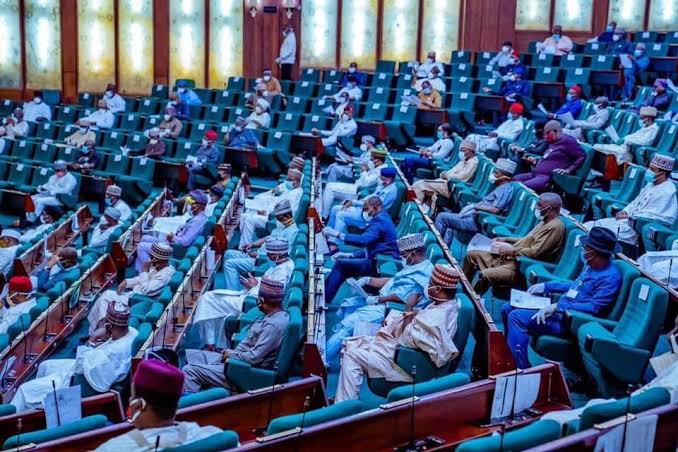The House of Representatives on Thursday rejected a motion that sought to restore the Federal Ministry of Niger Delta Development.
The motion, which was sponsored by Rep. Oboku Oforji (PDP-Bayelsa), was dropped following Speaker Tajudeen Abbas’ announcement that the President was willing to sign the South-South Development Commission Bill.
Abbas told the House that he got the President’s assurances over the bill in a meeting, saying that the motion had been overtaken by events.
The Majority Leader of the House, Rep. Julius Ihonvbere (APC-Edo) said that the issues contained in the motion were germane.
He, however, said that the conversion of the Niger Delta Development Ministry to that of Ministry of Regional Development will not in any way deny the Niger Delta region of its due development.
According to him, it will reduce its impact in the region, but it had only broadened its scope to develop other regions.
It would be recalled that President Tinubu had on Oct. 24, scraped the ministry and replaced it with the Ministry of Regional Development.
The change expanded the mandate of the new ministry to encompass developmental activities in all the six geo-political zones in the country.
Earlier, Oforji recalled that the Ministry of Niger Delta Development was created on Sept. 10, 2008 by late President Umaru Yar’Adua, who appointed Ufot Ekaette as the first minister.
He explained that the ministry was created to promote and coordinate policies for the development, peace,unity and security of the Niger Delta region.
The Rep. said that the ministry was to ameliorate the suffering, agitations and neglect of the oil rich region for decades by successive governments.
He said that the years of oil spillage, lack of arable land and social amenities in the region had necessitated the emergence of militancy in the region.
“It was in the short term of late President Yar’Adua ‘s leadership from Katsina State that dialogue was initiated with major stakeholders in the region and militants culminating in the Amnesty Programme that has brought relative peace to the region.
“These were prelude to the creation of the ministry, which was aimed at infrastructural development, environmental protection and empowerment of the youths in the region.
“The people of Niger Delta believe that the lofty dreams and aspirations of the founding fathers of the region will be actualised someday, hence their embrace of the creation of the Ministry of Niger Delta Development,” he said
Oforji said that the oil rich region witnessed palpable tension following the announcement of the scrapping of the Ministry of Niger Delta Development.
The House, however, resolved to step down the bill and to expedite actions on the bill on South-South Development Commission, which currently exists in other geo-political zones and controlled by the new Ministry of Regional Development. (NAN)
Bill to increase retirement age, service years for health workers scales 2nd reading
A bill for an Act to make provision for Retirement Age of Health Workers in Nigeria and for Related Matters has scaled second reading in House of Representatives.
The bill which was sponsored by Rep. Wale Hammed (APC-Lagos state) seeks to increase the retirement age of health workers from 60 to 65 years and service years 40 to 45.
Leading the debate, Hammed recalled that the Harmonised Retirement Age for Health Workers in Nigeria Bill, 2024 was read for the first time on Oct. 10.
He said that the bill has the potential to revolutionise the healthcare sector in Nigeria as it sought to make provisions for the compulsory retirement age and years of service for Nigerian health workers.
According to him, increasing the retirement age will retain experienced healthcare workers and allow them to continue contributing their expertise to the sector.
The lawmaker said that the bill was particularly important as the healthcare delivery system is faced significant challenges especially a shortage of skilled professionals.
“Nigeria’s healthcare sector is currently experiencing a significant depletion in both the number and quality of professionals due to two main factors.
“First, a substantial number of health workers are migrating abroad in search of the proverbial golden fleece, a trend difficult to stop given the fundamental human rights of the individuals concerned.
“Secondly, the compulsory retirement age of 60 and the mandatory 35 years of service, as stipulated in the public service rules, is contributing to the exodus of experienced professionals.
“While we cannot control the former, the latter can be addressed through the upward review of the retirement age which will be achieved by this bill,” he said.
The lawmaker said that there are precedences for such measures, as the Federal Government had previously reviewed upward, the retirement age for certain categories of public servants, including judges, lecturers, and teachers.
Hammed said that following the agreement between the Federal Government and stakeholders in the health sector to increase the retirement age for health workers from 60 to 65, there was a need for a legal framework to back it.
The lawmaker said that clauses 2 and 3 of the bill says “Health Workers in Nigeria shall compulsorily retire on attainment of 65 years of age or 40 years of pensionable service, whichever is earlier.
“Any law or the Public Service Rules requiring a person to retire from the Public Service at 60 years of age or after 35 years of service shall not apply to Health Workers in Nigeria,” he added.
Hammed urged the House to support the bill which has the potential of transforming the lives of millions of Nigerians and contribute to the country’s economic growth.
In his ruling, the Deputy Speaker, Rep. Benjamin Kalu referred the bill to the relevant committees for further legislative action. (NAN)










Got a Questions?
Find us on Socials or Contact us and we’ll get back to you as soon as possible.